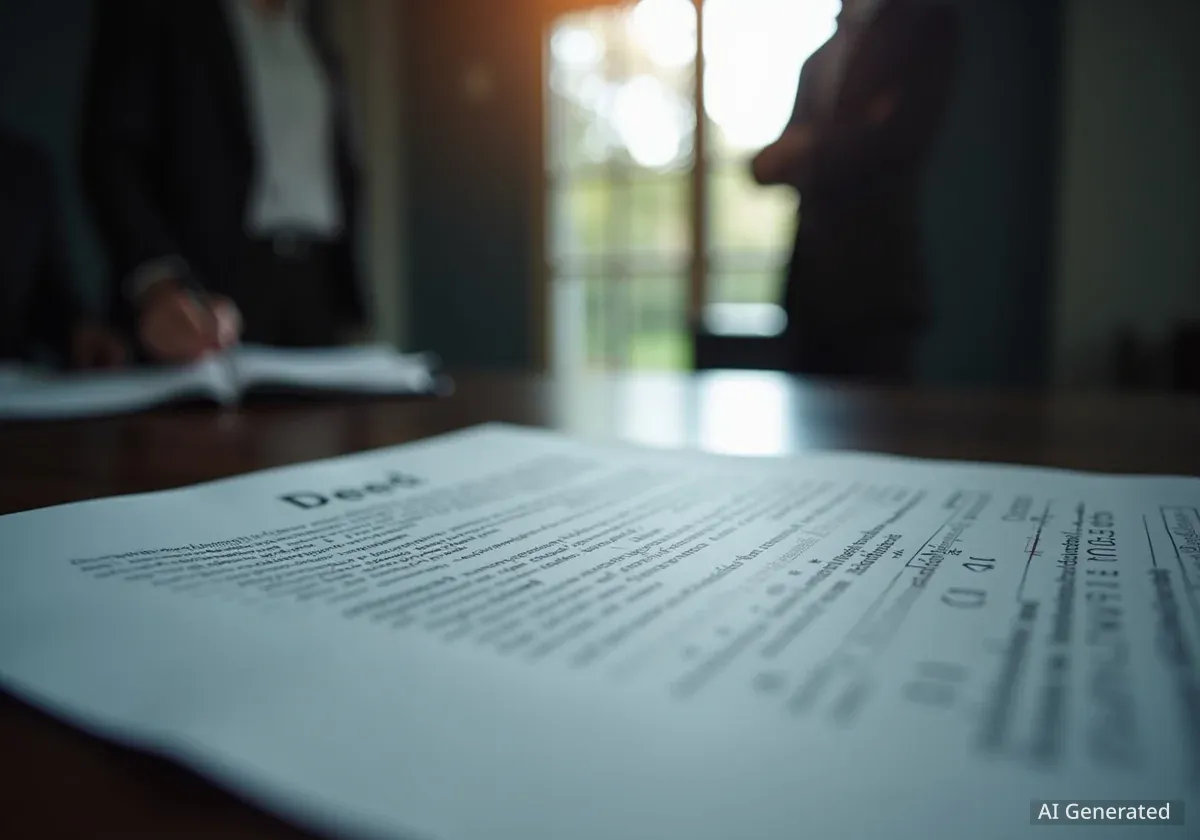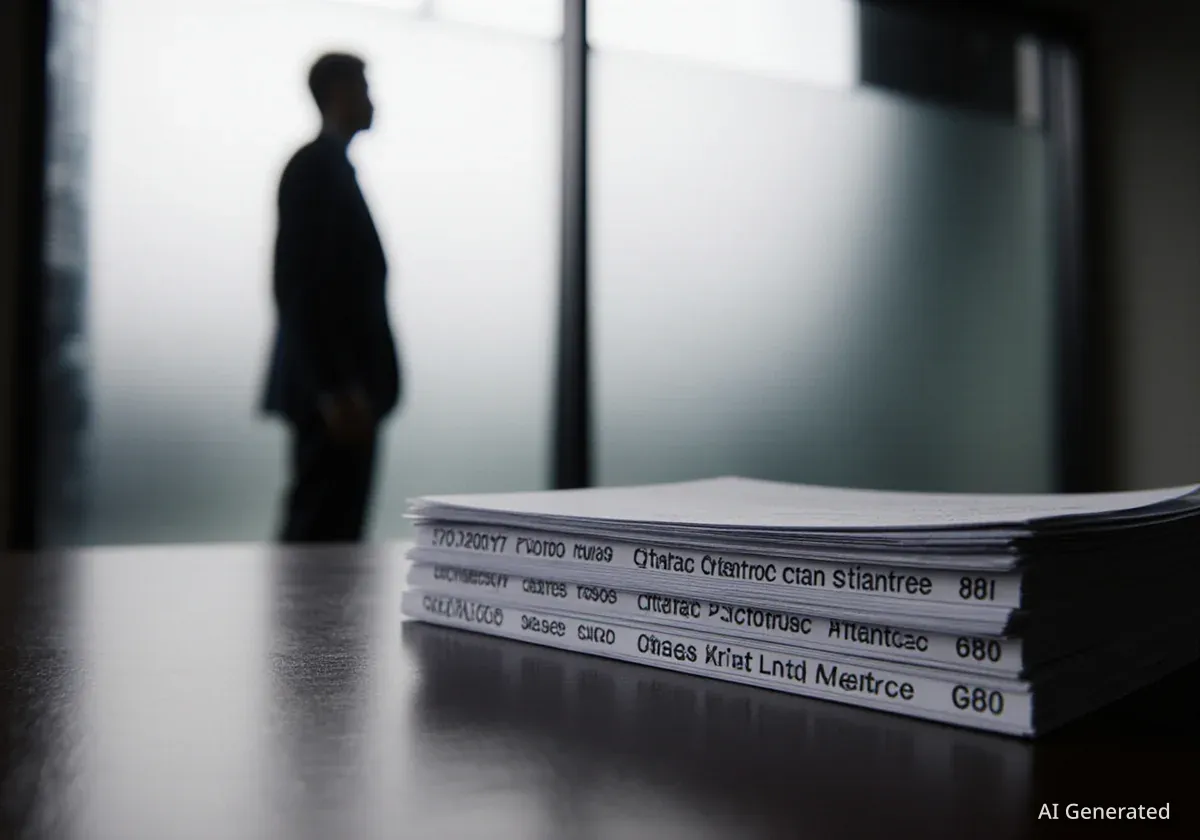A former real estate agent in Rockland County, New York, has pleaded guilty to illegally transferring a woman's home to himself by forging her signature on property documents. The case represents a significant legal milestone, as it is the first conviction under a state law designed to protect homeowners facing foreclosure.
According to the New York State Attorney General's office, Oscar Dias admitted to the charges, which involved a scheme to steal the equity from a homeowner in a vulnerable financial position. As part of his plea agreement, Dias is required to pay restitution and return the property's deed to the rightful owner.
Key Takeaways
- Former real estate agent Oscar Dias pleaded guilty to forging a signature to steal a home in Rockland County.
- The crime occurred while the property was in foreclosure, targeting a vulnerable homeowner.
- This is the first-ever conviction under New York's Home Equity Theft Protection Act (HETPA).
- Dias will pay restitution, and the original owner will have the deed to her home restored.
Details of the Guilty Plea
Oscar Dias, who previously worked as a licensed real estate agent in Rockland County, formally admitted his role in a property theft scheme. The case centered on his actions to unlawfully gain control of a residential property that was undergoing foreclosure proceedings.
Prosecutors stated that Dias forged the homeowner's signature on legal documents, effectively transferring the ownership of the house to himself without her consent or knowledge. This act allowed him to steal the accumulated equity in the property, which is the market value of the home minus any outstanding mortgage balance.
The admission of guilt confirms the allegations brought forward by the state attorney general's office, which has been actively prosecuting cases of real estate fraud and deed theft across New York.
What is Deed Theft?
Deed theft, also known as title fraud, is a crime where someone steals a property by forging the owner's signature on a deed and filing it with the county records office. This makes it appear as though the property has been legitimately sold, allowing the criminal to sell the home or take out loans against it.
A Landmark Conviction Under State Law
The conviction of Oscar Dias is particularly noteworthy because it is the first successful prosecution under New York’s Home Equity Theft Protection Act (HETPA). This legislation was specifically enacted to provide stronger safeguards for homeowners at risk of losing their homes to foreclosure.
The law sets strict rules for any transaction involving the sale of a home in foreclosure, aiming to prevent predatory practices where third parties exploit homeowners in distress. By securing this guilty plea, authorities have set a legal precedent for enforcing the act.
The Home Equity Theft Protection Act (HETPA)
HETPA was created to combat scams that target individuals whose homes are in foreclosure. The law requires, among other things:
- A written contract with clear terms for any sale or transfer.
- A five-day cancellation period for the homeowner after signing the contract.
- Prohibitions against misleading or deceiving homeowners.
This case demonstrates the state's commitment to using this legislation to prosecute individuals who prey on financially vulnerable New Yorkers.
Restitution and Consequences
As a direct result of the guilty plea, the legal process will now focus on making the victim whole. The New York Attorney General's office confirmed that the terms of the agreement mandate specific actions from Dias.
First, the deed to the property will be returned to its original, rightful owner. This step reverses the fraudulent transfer and restores her legal ownership of the home. Second, Dias is required to pay restitution. While the exact amount was not specified, restitution in such cases typically covers financial losses incurred by the victim, including legal fees and other related costs.
The conviction itself carries legal penalties, and this case serves as a warning to others who might attempt similar fraudulent schemes. It reinforces that legal mechanisms are in place to protect property owners and punish offenders.
Protecting Homeowners From Equity Theft
Real estate fraud remains a significant concern for authorities, especially in markets with high property values. Homeowners, particularly seniors and those facing financial hardship, are often the primary targets of these schemes.
Common Red Flags of Deed Theft
Experts advise homeowners to be vigilant and watch for warning signs of potential fraud. These can include:
- Unsolicited Offers: Be wary of unsolicited offers to help you pay your mortgage or avoid foreclosure, especially if they involve signing over the deed.
- Pressure to Act Quickly: Scammers often create a false sense of urgency, pressuring homeowners to sign documents without reading them or seeking legal advice.
- Vague or Confusing Paperwork: Any legal document related to your property should be clear and easy to understand.
- Receiving Unfamiliar Notices: If you receive notices of foreclosure or unpaid water bills for a property you own and have been paying on, it could indicate that the title has been fraudulently transferred.
Authorities encourage anyone who suspects they may be a victim of property fraud to contact their local district attorney's office or the state attorney general's office immediately. Regularly checking your property records with the county clerk is another proactive step to ensure no unauthorized changes have been made to your deed.





